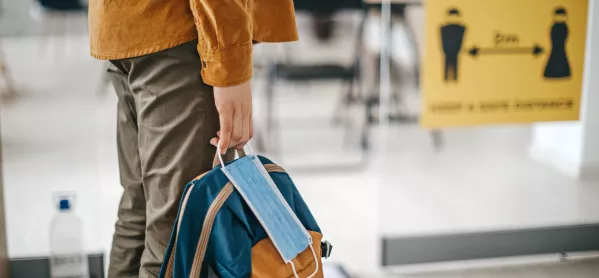Colleges must prioritise student wellbeing as they reopen for a new academic year, the National Union of Students has warned.
A survey published by the NUS today reveals that 60 per cent of students are experiencing low self-esteem and feelings of isolation, with 73 per cent interacting less with other students from their institution. The research also shows that LGBT+ students and disabled students are more likely to experience low self-esteem at this time.
More than half of students said that they were concerned about contracting the coronavirus on campus, and 18 per cent of students said they had not had “the necessary support to deal with coronavirus”, and called for more access to mental health support and counselling, medical support, financial assistance and wellbeing support from their college.
Covid-19: How are colleges reopening?
More: It’s a new term - and there are reasons for optimism
Listen: The return to college with Jo Maher
Sara Khan, NUS vice-president for liberation and equality, said that the wellbeing of students should be “paramount to everyone in the education sector”.
Coronavirus: Calls to support college students’ mental health
She said: “There can be no doubt that coronavirus has taken its toll on young people, with many experiencing increased isolation, low self-esteem and sleep deprivation.
“Covid-19 has further entrenched the oppressive systems that harm already disadvantaged groups. Students of colour, disabled students, student parents and LGBT+ students have been disproportionally affected and desperately need greater support from universities and colleges. Institutions and our learning environments have not been designed in a way to be accessible to these students and this is why we see disproportionate impacts on them.
“But we must also all recognise and tackle the causes of these mental health problems. Financial stress is a major concern for all students and this has only been heightened by coronavirus. The government must alleviate these concerns by providing more financial support for students, if we are truly to tackle the mental health crisis. Similarly, physical spaces, services and online learning are often inaccessible to certain groups of students, and this can lead to negative impacts on their mental health.
“Students need to be confident that when they ask for help at these difficult times, they will find it. Students’ unions are best placed to provide this, so we really need to make sure students’ unions are properly funded to enable them to meet this increasing demand so students receive the support so clearly needed.”




